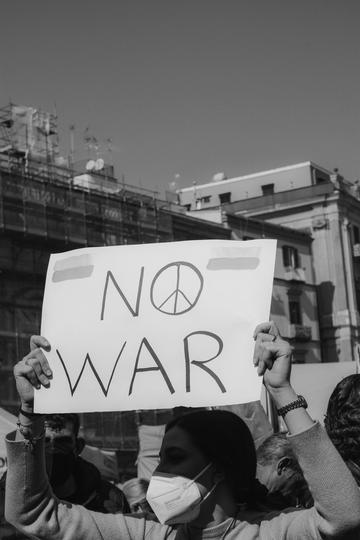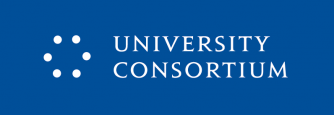Opportunity in Polycrisis: Finding Victories in Ukraine and Beyond
Reflections on UC Alumni Network Conference by Sophia Freuden
The University Consortium’s alumni conference in Vilnius in June 2024 occurred at a critical point in global events. Russia’s war in Ukraine loomed large over the conference, yet other problems outside the UC’s regional focus—Israel, Gaza, worldwide elections—were pressing as well. Incidentally, Joe Biden’s stunning display of age at the debate with Donald Trump took place the first night of the conference. This heightened the already urgent need to organize an effective solution to the growing polycrisis. This essay serves as my reflection on that need and what actions we, as UC members and professionals in international affairs, can realistically take in that regard.
The polycrisis can be understood through two related questions: How do we seek a palatable conclusion to the war in Ukraine? And more broadly, how do we address the growing tide of authoritarianism in and outside the West? My answers to these questions are filtered through my biases and perspectives; I strongly encourage other UC members to contribute their own thoughts, particularly where there is disagreement.
First, the war. The situation in Ukraine is precarious. A dynamic first 18 months of the war led to a flip-flop in expectations on both sides of the conflict. Russia intended to take Kyiv within days, then Ukraine and its partners expected the 2023 counteroffensive to drive the occupiers out—perhaps even from Crimea. The situation is currently a stalemate, embedded in a greater war of attrition that Russia is likely to win in the long run due to its size and bald usage of soldiers as cannon fodder. With significant and urgent efforts, we could transition from a stalemate to a winnable situation for Ukraine. But what should victory look like? What can it look like?

Ultimately, the terms of victory are for Ukraine and Ukrainians to decide.
To secure as much flexibility as possible for this decision, the West must logically provide Ukraine the most favorable negotiating position possible. This must include the option to join the EU and especially NATO. This also means the expedient delivery of funding and offensive weapons systems. Above all, it means finally having the will to make Russia hurt. A fear of escalation has cowed Western leadership. Western governments are only willing to give Ukraine what it needs after it is too late. If the war is to end within the near future—and it must—then the West must see through Putin’s bluffs on escalation. Future aid to Ukraine must therefore be bold. The current approach is both unacceptable and unsustainable. Anything less than undeniable, concrete wins for Ukraine will incentivize Russia to wage and win this war of attrition.
In my final considerations of the war, I want to pay special attention to the information aspects of the conflict. The West and broader democratic world has shown some resilience on this front, though the coalition harbors considerable weaknesses. First and most critically, there is a stubborn unwillingness to regulate the information space. Kinetic wars against democracy such as in Ukraine might end on the battlefield, but continue to rage in the information space if left neglected. This is especially true of the digital world, where social media, generative AI, and the surveillance economy remain unchecked. Chaos in the information space will continue to shake the foundations of democracy until governments are willing to regulate tech giants. These companies’ priority of profit and growth above all necessarily puts democracy on the chopping block.
Second, the West does not seriously counter other countries’ deep-seated perceptions of Western hypocrisy on governance and ethics vis a vis Ukraine. Within the so-called “global south”—a label not universally beloved by the people it attempts to describe—there is a prevailing view that the West believes concepts liked democracy and human rights are only for Europe and North America. The implications of class and especially race in this are painful. Many in the global south contrast Ukraine and Gaza as a textbook case of this hypocrisy. If the West truly does not believe these allegations of hypocrisy, ignoring them will not solve this problem. Even worse, Russia will continue to exploit those allegations through vicious disinformation and historical revisionism.
Last, a meta-level consideration: those of us working to resolve the polycrisis are not immune to the pressures of the information space. This includes both the obvious pressure to adopt viewpoints and the subtler pressure that we must not discuss our disagreements or seek differing opinions. We cannot credibly combat disinformation and polarization when we are unable to recognize our own biases and mistakes. I encourage anyone involved in Ukraine’s war effort and the greater polycrisis to find an audience, even a private one, to serve as a sounding board and devil’s advocate. The UC serves as fantastic resource for finding such an audience.
From the war, I pivot to the broader issue of democracy versus authoritarianism. Any effort to curb encroaching authoritarianism throughout the world must first address the reasons for this trend. Simply branding this trend as a rise in hatred is naïve and dangerous. The explanations for this vary. I personally trace the origins of modern Western authoritarianism to Washington Consensus policies of the late twentieth century. These austere policies led to post-industrial collapse, eroding labor rights, stagnating real wages, and rising economic inequality. These issues were only exacerbated by the global financial crisis of 2008, and have yet to be reversed over a decade later. Simply put, a stark decline in quality of life across the West led to understandable frustrations with establishment politicians and institutions.
Those in power declined to address those frustrations with any real deviation from the neoliberal status quo, and populists on the left and right angled in the mid-2010s to fill the void by weaponizing those frustrations. The far-right populists are now a force to reckon with, often going as far as violently subverting democracy and siding with authoritarian governments such as Russia and China to further their own political agendas.
If we defenders of democracy—conservative and liberal—hope to change this, we must consider bold policy changes that undo a decades-long decline in standards of living. Recent political changes in the United Kingdom, France, and even the United States may lead to this. These governments might also fail if they continue to choose technocratic solutions over actually addressing voters’ real concerns. In doing so, they would let those who exploit isolationism and hatred drive global order and policy, perhaps irreversibly. Democracy defenders critically must also organize more effectively. France’s recent eleventh hour rejection of far-right control is an exemplary case of such organization. I hope we all learn lessons from it.
Similar to the UC conference in Vilnius, this essays likely reads as a bleak interpretation of current events. I defiantly offer measured optimism as we approach the future, however. As I already wrote, the war in Ukraine is winnable. In crisis, even a polycrisis, there is opportunity. We must act with daring, ruthless organization, and haste if we want to seize this opportunity. Indeed, the clock is ticking on the West’s collective appetite for supporting Ukraine. Electoral outcomes this year could radically change not just the battlefield, but the entire global balance of power. Passively waiting for the war to somehow come to a viable end is not an option. Only a clear-eyed, energized, and organized strategy for Ukraine and greater Europe will do. Though this strategy would focus on Europe, it must seriously consider political, economic, and humanitarian realities around the world. Ukraine, after all, is only one part of the polycrisis.
The views expressed in this essay do not reflect those of organizations affiliated with the author.



